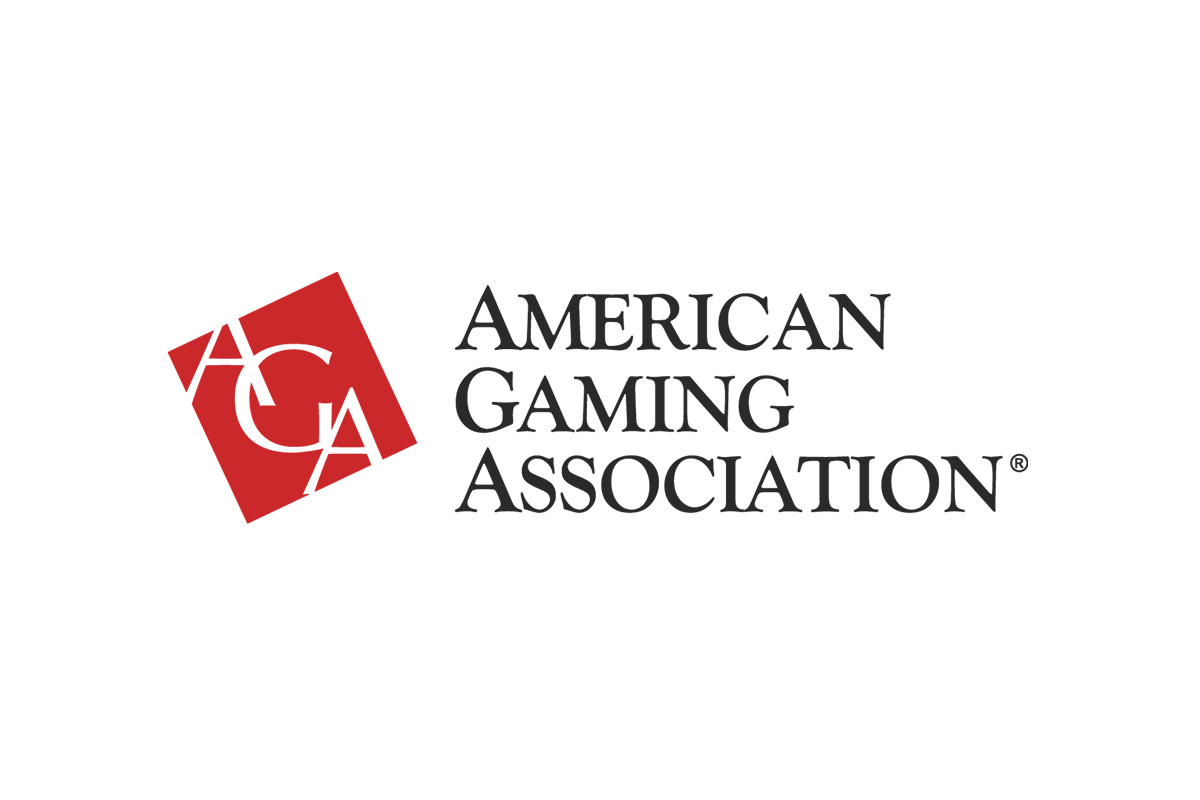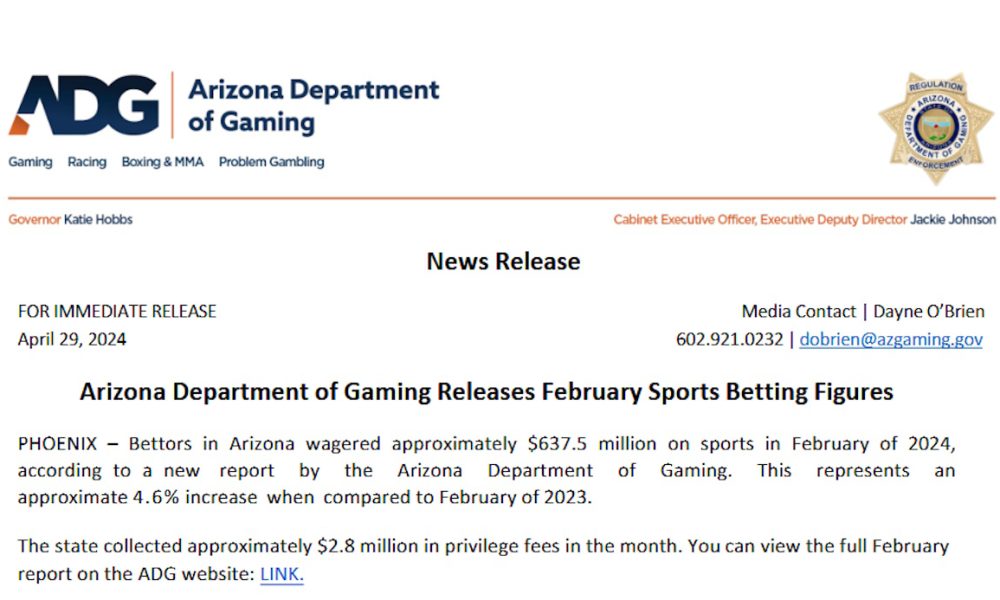

Compliance Updates
Navigating New Frontiers: AI’s Role in Reinventing iGaming Compliance
By Paul Addicott-Evans, Managing Director for Products at ComplianceOne Group
In high-stakes world of iGaming, regulatory compliance is not just a box to be checked – it is the bedrock upon which the industry’s integrity and customer trust are built. As we navigate this complex landscape, the emergence of Artificial Intelligence (AI), especially through Large Language Models (LLMs) like ChatGPT, promises a revolution in how we approach regulatory processes. Yet, with great power comes great responsibility, and the integration of AI in compliance raises crucial questions about the verifiability and accuracy of its data inputs.
The Data Verification Dilemma
At the core of this AI-driven transformation in iGaming compliance is ChatGPT, a marvel of modern technology powered by a sophisticated Large Language Model. ChatGPT opened the world’s eyes to the possibilities of AI, whilst simultaneously creating a major question with wide-spread adoption: Can we trust it?
Despite its impressive capabilities, a fundamental challenge persists: verifying the accuracy and currency of the information it provides. In many walks of life, not least the ever-changing regulatory environment of iGaming, relying on AI tools without verifiable data sources could lead to non-compliance, legal challenges, and potentially financial penalties.
This dilemma is intensified by the dynamic nature of iGaming regulations, which can vary significantly across jurisdictions and are subject to frequent updates. Non-compliance can be extremely costly, so ensuring that AI tools are not only informed by but also aligned with the latest legal standards is paramount. This calls for a robust framework where AI tools are continuously fed with up-to-date and verified regulatory data, and their outputs are regularly audited for accuracy and compliance.
The science bit…
How do we approach this problem? The availability of large language models is now almost a commodity. The technology is available for everyone to use. However, when faced with such an important problem as reliability and verifiability, there is a need to weave supporting technologies into the AI-framework. This is where vector embeddings come into play, acting as a bridge between raw data and the AI’s ability to understand and verify it.
Imagine vector embeddings as a vast library, not of books, but of words, phrases, and concepts, each with its own unique location. This library is created by a neural network, a type of AI, which reads and understands vast amounts of text, then organizes this information into a map.
Each word or phrase is placed precisely, so that words with similar meanings are neighbours.
For iGaming compliance, this library becomes invaluable. When AI uses vector embeddings, it’s like consulting this map to understand not just words, but the context and meaning behind them. This is crucial for verifying vast, complex regulatory information.
In essence, vector embeddings allow AI to comprehend and verify information much like an expert human would, but with the speed and accuracy that only a machine can offer. This boosts the reliability of AI in iGaming compliance, ensuring that the operators get accurate and up-to-date information, crucial for staying within regulatory boundaries.
AI’s Edge in iGaming Compliance
The use of AI in iGaming compliance, when done correctly, can offers a suite of advantages:
- Enhanced Precision and Efficiency: AI’s ability to swiftly and accurately synthesize regulatory information ensures that operators are always in step with the latest compliance requirements. For instance, an AI tool could analyse recent amendments to anti-money laundering laws across different jurisdictions within minutes, a task that would take humans significantly longer.
- Customized Regulatory Insights: AI can offer bespoke guidance, adapting to the unique operational and geographical nuances of each iGaming operator. An example of this is how AI tools can provide tailored advice to operators based on specific games offered or markets targeted, considering the unique regulatory landscape of each area.
- Automated Compliance Oversight: Continuous AI surveillance of iGaming operations guarantees adherence to regulatory standards, proactively identifying and rectifying instances of non-compliance. This could include real-time monitoring of player interactions to ensure responsible gaming practices are maintained.
Looking Ahead
The journey of integrating AI into iGaming compliance is fraught with challenges, yet the potential rewards are substantial. By anchoring AI in the principles of data verifiability and source transparency, we can redefine how the iGaming industry navigates its regulatory maze – a shift not just in technology but in establishing a new era of trust and reliability.
_______________________________________________________________________________
Introducing IntelligentOne AI
At Complitech, we stand at the forefront of this exciting frontier with OneAI. Developed as part of the comprehensive Complitech database of global regulations, this groundbreaking AI product is poised to redefine iGaming compliance. OneAI distinguishes itself by providing current, accurate data, free from the common ‘hallucinations’ of LLMs, thereby offering responses to regulatory inquiries that are not just swift, but also dependable and verifiable.
Take the example of a Games studio assessing the impact of Germany’s regulations on slot games, particularly concerning the maximum bet limit and the mandatory delay between spins.
Using OneAI, the studio inputs a query about slot regulations in Germany. The AI tool quickly processes this request, providing a detailed analysis of the current German regulations on slot games. It highlights that the maximum bet per spin is capped at €1 and that there is a required minimum interval of 5 seconds between spins. This information is directly linked to the relevant sections of the German Interstate Treaty on Gambling, ensuring accuracy and verifiability.
This targeted insight allows the studio to make informed decisions about game design and offerings in the German market, ensuring compliance while optimizing their product for the new regulatory environment.
With OneAI, iGaming companies can access instant, reliable insights for complex technical compliance questions, streamlining decision-making processes. This innovative tool represents a significant leap in the application of AI in iGaming compliance, marrying the linguistic dexterity of LLMs with the robust, updated Complitech database. It heralds a new chapter in iGaming regulation, where technology not only expedites but also elevates the trustworthiness and accuracy of compliance processes. As AI continues to evolve, tools like OneAI are set to play a pivotal role in fostering a safer, more compliant, and trustworthy iGaming ecosystem.
Compliance Updates
Gaming CEOs Optimistic on Industry Outlook, Report Evolving Industry Challenges

Amidst an evolving economic landscape, gaming executives report a positive outlook on future industry business conditions while remaining satisfied with the current business environment, according to the American Gaming Association’s (AGA) Gaming Industry Outlook.
Nearly all gaming executives surveyed characterized the current business environment as good (44%) or satisfactory (50%), mirroring similar sentiment from Q3 2023. Meanwhile, executives are more optimistic about future conditions, with 32 percent of CEOs expecting business conditions to improve over the next six months, up from 20 percent in Q3 2023.
“Gaming’s record-setting growth over the last three years has set a new standard for industry success,” said AGA President and CEO Bill Miller. “However, as we enter a period of market normalization, continued investment and innovation in offering world-class, responsible entertainment experiences will be required to maintain industry momentum.”
Gaming Executive Panel
Gaming executives have become more positive in their views that overall balance sheet health will improve over the next 6 months (42% net positive), but they expect the pace of revenue growth (13% net negative) and new hiring (22% net negative) to slow. These expectations for decelerating growth have influenced expectations for increases in capital investment and gaming units in operation, with smaller net positive sentiments than before.
- In contrast to past Outlooks, gaming equipment suppliers are slightly pessimistic about the sale of gaming units for replacement use and new or expansion use (both 13% net negative). However, they remain optimistic about the pace of capital investment (38% net positive).
- Half of operator CEOs expect capital investments in hotels over the next year to be higher than normal, and compared to last fall, more also expect higher than normal levels of capital investment in meetings and conventions and table games (28%). Meanwhile, 44 percent of CEOs expect increases in food and beverage investment, down from 67 percent in Q3 2023.
These expectations are also informed by evolving macroeconomic challenges. Executives report that inflationary or interest rate concerns continue to be a major factor limiting operations (28%), but these have been overtaken by geo-political risk (34%) and uncertainty of the economic environment (34%) as the biggest limiting factors in the most recent Gaming Executive Panel.
Current Conditions Index
The Current Conditions Index of 102.8 for Q1 indicates solid annualized real economic growth in the industry of 2.8%. This includes gaming revenue, employment and employee wages and salaries. Notably, the Current Conditions Index shows gaming expanding faster than the overall U.S. economy which last week reported 1.6 percent GDP growth in Q1 2024.
Future Conditions Index
The Future Conditions Index stands at 102.2, indicating annualized industry economic activity, after controlling for underlying inflation, is expected to moderately increase over the next six months. This outlook reflects Oxford Economics’ forecast that the U.S. economy will slow during 2024 but avoid recession. Despite a projected economic slowdown, consumer survey results continue to indicate that more than one-third of adults expect to visit a casino during the next 12 months, consistent with prior quarter results.
About the Outlook
The AGA Gaming Industry Outlook is prepared biannually by Oxford Economics. It provides a timely measure of recent industry growth and future expectations. The Q1 2024 survey was conducted between March 28 – April 10, 2024. A total of 32 executives responded, including executives at the major international and domestic gaming companies, tribal gaming operators, single-unit casino operators, major gaming equipment suppliers, and major iGaming and/or sports betting operators.
Compliance Updates
Arizona Department of Gaming Releases February Sports Betting Figures

PHOENIX – Bettors in Arizona wagered approximately $637.5 million on sports in February of 2024, according to a new report by the Arizona Department of Gaming. This represents an approximate 4.6% increase when compared to February of 2023.
The state collected approximately $2.8 million in privilege fees in the month. You can view the full February report on the ADG website: LINK.
Arkansas
North Carolina Lawmaker to Introduce Bill to End College Player Prop Bets

North Carolina legislator intends to introduce legislation to ban college player prop bets, according to a staff member.
North Carolina State Representative Marcia Morey, D-Durham, a former Olympic swimmer, will submit a bill by the bill filing deadline on Thursday to ban these bets, Hannah Smith, Administrative Assistant, told Gambling.com on Monday.
The North Carolina Legislature began meeting in Raleigh on April 24 with the session set to end on July 31.
Recently, NCAA President Charlie Baker, a former Massachusetts governor, called upon states to ban college player prop bets, which is short for proposition bets. Baker said these bets, based on an athlete’s individual performance such as the over/under on the number of rebounds the player might record, could undermine the integrity of games and lead to harassment of players.
Former North Carolina Tar Heel star Armando Bacot is among athletes who have expressed concern about harassment. Bacot said he heard from fans angry that he didn’t get enough rebounds in an NCAA tournament game against Michigan State – a game the Tar Heels won.
College Prop Bets Allowed in Some States
Some states already ban these bets, while others including Louisiana, intend to impose a ban this summer before the college and pro football seasons begin.
In other states, the proposed ban has met with resistance.
During a recent interview on The Edge, Arkansas casino executive Carlton Saffa told Gambling.com a ban would drive bettors to unregulated offshore sportsbooks or illegal bookies. He said a better solution is to keep those bets legal in regulated markets where irregularities can be spotted.
“Sunshine is the best disinfectant,” Saffa, the Chief Marketing Officer for the Saracen Casino Resort in Pine Bluff, Arkansas, said.
College player prop bets remain legal in Arkansas.
In North Carolina, where statewide mobile sports betting became legal in March, State Representative Jason Saine, R-Lincoln, said in a story on the WNCN-TV website that a college player prop ban is ‘a solution in search of a problem’. If athletes are being harassed, he said, campus police should crack down on those making the threats and make an example of them. A ban won’t stop the problem, Saine said.
“If we ended (player prop bets) tomorrow, this kind of behavior would still continue with fanatical people,” Saine said. “Follow rules of society, you don’t threaten anybody, or you shouldn’t be. And, that’s kind of my take on it. I don’t think we need a whole new set of rules to pursue something like that.”
Morey, the lawmaker proposing the ban, said people are ‘forgetting about the individuals who are actually playing the game and having the pressure on them’.
“Let’s give them a break,” she said.
-

 gaming2 years ago
gaming2 years agoODIN by 4Players: Immersive, state-of-the-art in-game audio launches into the next generation of gaming
-
EEG iGaming Directory7 years ago
iSoftBet continues to grow with new release Forest Mania
-
News6 years ago
Softbroke collaborates with Asia Live Tech for the expansion of the service line in the igaming market
-
News5 years ago
Super Bowl LIII: NFL Fans Can Bet on the #1 Sportsbook Review Site Betting-Super-Bowl.com, Providing Free Unbiased and Trusted News, Picks and Predictions
-
iGaming Industry6 years ago
Rick Meitzler appointed to the Indian Gaming Magazine Advisory Board for 2018
-
News5 years ago
REVEALED: Top eSports players set to earn $3.2 million in 2019
-
iGaming Industry6 years ago
French Senator raises Loot Boxes to France’s Gambling Regulator
-
News6 years ago
Exclusive Interview with Miklos Handa (Founder of the email marketing solutions, “MailMike.net”), speaker at Vienna International Gaming Expo 2018





















